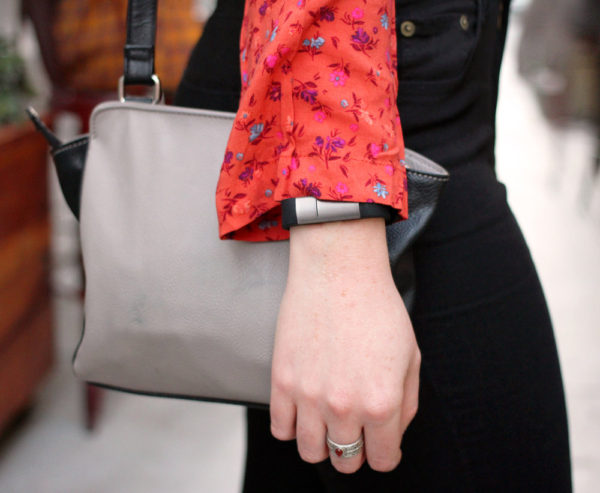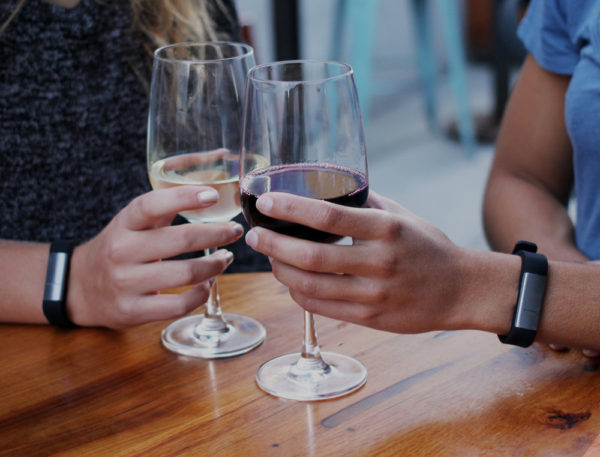Evan Strenk’s and Bob Lansdorp’s startup venture was born out of a conversation over a beer.
Looking back, how appropriate.
Strenk and Lansdorp are the founders of Milo Sensors, the Santa Barbara, California-based startup behind of PROOF, a small, Fitbit-like wristband that – instead of counting steps or monitoring your heart rate – will help you decide whether one more beer is a good idea. The sensors in PROOF measure the wearer’s blood alcohol content and send that information in real-time to a mobile app.
“We had the idea to go to read different molecules from skin, the first one being alcohol,” Strenk said in an interview. “Out first couple meetings were at a little pizza joint in Santa Barbara Cali and we were enjoying pizza and beer and were starting to create a list of different interesting molecules to read through skin via bio analytics and said, ‘Why not read the alcohol molecules that are in the skin?’”
He added, “That was the start of a long road.”
Strenk, who transitioned from an extensive product development background, and Lansdorp, who has advanced degrees in biophysics and nanotechnology, are both University of California at Santa Barbara graduates and met in 2015. After tinkering with their vision and securing initial capital from a UC Santa Barbara new venture competition, the co-founders went on to win the NIH National Institute of Alcoholism and Alcohol Abuse Challenge Grant, securing a $100,000 capital infusion.
Inside PROOF lies a sensor about the size of a dime that measures blood-alcohol level by reading perspired alcohol. Once paired with the sensor, the PROOF app offers LED and vibration alerts based on your pre-selected BAC-level benchmarks. Strenk emphasizes that the device cannot and is not intended to stand in place of sound judgment, but rather can help people make more informed decisions while, say, out at the bar or, maybe even more importantly, before getting behind the wheel of a car.
“We hope to provide the ability to make informed decisions about alcohol intake, but the thing we constantly butt up against is the perception that our device can replace good judgement,” he said. “So tracking that message and informing the public is definitely a challenge.”
Another challenge the Milo Sensors team faces right now is raising capital. Currently, PROOF is running a crowdfunding campaign through Kickstarter to finance its continued growth, and the company plans to soon have products available through e-commerce and eventually retail outlets. Along the way, the team has learned some interesting lessons about potential marketing segments for its technology.
“We’re finding our target market spans a very wide-spectrum of people,” Strenk said, noting that his company initially planned to set their sights on young, tech-minded “early adopters” (the have-to-have-the-latest-thing crowd), but has team has since zeroed in on adults who are heavily concerned about their health and wellness – and how their alcohol intakes affects things like their overall health or their athletic performance. The company, he said, has tweaked its marketing strategy accordingly.
How exactly those products will look – and whether you’ll even know you’re wearing a MiloSensors device someday soon – remains undecided. Strenk and Lansdorp are exploring the idea of integrating their sensors technology into another in-market wearable device (the PROOF sensor could, for example, potentially be folded into a Fitbit, Apple Watch or Samsung Smartwatch)
“We would be happy if something like that happened, because we’re just looking to increase awareness and the education round alcohol intake,” Strenk said.
Either way, he believes Milo Sensors is just getting started. With so many surface-level molecules available and the increasing ability to read them through new sensor technology, Strenk says his team plans to keep digging deeper into bio-analytics and look for solutions to even greater challenges.
“The fantasy everyone saw 10 years ago with wearables is starting to become a reality,” Strenk said, adding that be believes the next step for the industry will be remote delivery of health-related analytics and information that will help monitor and treat patients with chronic conditions or diseases. “We’re just starting to scratch the surface of what’s possible.”

